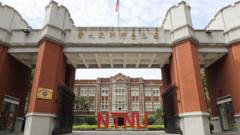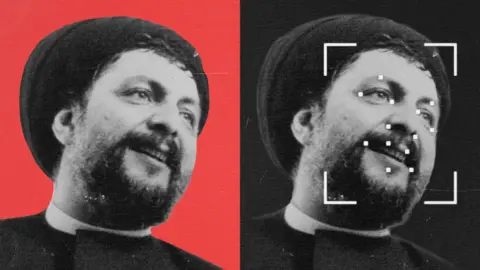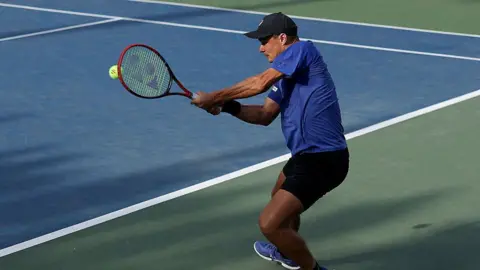A sports coach at National Taiwan Normal University (NTNU) in Taipei has publicly apologized after being accused of pressuring students into donating blood for research purposes. Chou Tai-ying, the 61-year-old coach, stated her goal was to support her team, which faced frequent injuries, but details surrounding the blood donation's intended purpose remain unclear.
The incident was initially highlighted in 2024 by Taiwanese politician Chen Pei-yu, who claimed that students were informed they could lose academic credits if they refused to participate in the blood-donation project. Following the allegations, an internal investigation revealed that blood sampling had been conducted since 2019 and continued into 2024 across various research initiatives.
Chou, acknowledging her role in requesting unqualified students to assist in the blood collection, expressed regret for the pressure her remarks may have placed on both students and the institution. In a statement, she admitted, "It is definitely my fault for making you feel the way you did," reflecting her accountability for the situation.
Prof. Chen Hsueh-chih, who led one of the research projects, also issued an apology, claiming their intent was to contribute positively to the athletes' welfare, though the implementation inadvertently caused distress to the participants and their families. The investigation highlighted that students were subjected to daily blood withdrawals, which were ultimately discarded due to procedural inadequacies found in the collection process.
Chen Pei-yu’s initial accusations alleged that players were expected to provide three blood samples a day over 14 days, raising concerns about the ethical implications of the project conducted over several years.
NTNU's principal, Wu Cheng-chi, issued an apology for what he described as negligence and detailed plans for a review of the university's ethics and oversight protocols. Taiwan's deputy education minister confirmed that the case would undergo scrutiny from their department, alongside an evaluation of the actions taken by Chou and her colleague Chen. As a result of the unfolding events, the education ministry has also indicated it may revoke the coaching license of an unnamed women's football coach at NTNU. This case has raised serious questions regarding ethical research practices in educational institutions across Taiwan.






















